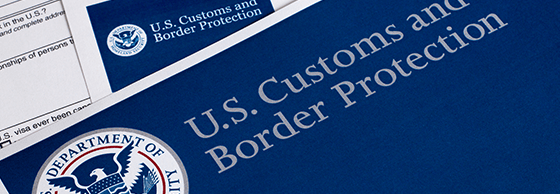Intellectual Property Insights from Fishman Stewart
Mini Article – Volume 23, Issue 17
Share on Social

Customs Recordation – A Cost-Effective Way to Combat Piracy
By Kristyn Webb
September 19th is International Talk Like a Pirate Day. In terms of intellectual property, “pirating” refers to the unauthorized copying, distribution, or use of someone else’s creative work without their permission, and often for personal or financial gain. This can include various forms of creative content, such as software, music, movies, books, artwork, and more. Piracy essentially involves reproducing and distributing intellectual property without compensating the original creators or obtaining the necessary licenses or permissions.
In July 2023 alone, US Customs and Border Protection seized $165 million worth of counterfeit and pirated goods. Beyond the legal and economic harms, counterfeit and pirated goods can negative health and safety implications because they are often made of low-quality materials and manufactured without required consumer protection specifications. Fake phone chargers can explode, fake medicine can cause severe and fatal health issues, and fake airplane parts can well… you get the idea.
One way that brand owners can protect themselves, and consumers, is by registering their trademarks and copyrights with US Customs and Border Protection and educating customs officers about details to look for when searching for potentially infringing goods. Many jurisdictions offer similar recordation services, such as China, Singapore, Thailand, Vietnam, India, the EU, Canada, Mexico, and many others. Additionally, a number of countries, such as China, Singapore, and Thailand, will inspect both imported and exported goods, preventing counterfeit goods from entering or leaving the country.
Recordation fees are relatively low, and recordation offers a cost-effective way to protect both brand owners and consumers from potentially harmful counterfeit and pirated goods. If you are interested in learning more about the specifics of recordation in the US, or in other jurisdictions, we *arrr* happy to help!
Kristyn Webb is the Group Leader of Fishman Stewart’s Copyright Practice Group, and is currently earning a Master’s Degree in Copyright Law at King’s College London.

Published September 8, 2023


Related Content from Fishman Stewart
People have long pondered whether or not the Giza pyramids were indeed solely burial chambers, which was the only known, and archaeologically determined, use—until now.
By 1930, efforts began in New York to replace Mother's Day with Parent's Day because men were more than just breadwinners. Those efforts didn't catch on, probably because in that era, women often spent more time in the home.
In February, Nike and Skims announced that they will be working together on a new brand, NikeSkims. The co-brand will create a new line of training apparel, footwear, and accessories specifically designed to meet the unique needs of women athletes.
Generally, federal courts have exclusive jurisdiction over copyright cases, and often, this presents an insurmountable paywall for individual artists and small businesses to vindicate their rights, especially where the value of the individual copyrighted works are relatively low.
Dedicated to raising public awareness about the importance of encouraging innovation and creativity throughout the world, the World Intellectual Property Organization (WIPO) annually observes World Intellectual Property Day on April 26 to showcase the role that patents, trademarks, industrial designs, copyrights and trade secrets play in our everyday lives.
Hold onto your foam fingers, sports fans – college sports just got a whole lot more interesting! The latest updates to Name, Image, and Likeness (NIL) rules are making student-athletes bigger than ever, and it’s not just about the game anymore.
Did a federal court in Louisiana recently decide that US copyrights are global rights? It seems so.
One of his most famous songs, “Lose Yourself” was recently at the center of a lawsuit. In 2019, Eminem’s publishing company Eight Mile Style sued Spotify claiming that Spotify streamed a number of its musical compositions without proper licenses.
One of the most common challenges is whether AI should be free to train on data that is protected by copyright and owned by third parties without first obtaining permission.
The U.S. Copyright Office (USCO) recently published its latest report on AI and “copyrightability.” In short, the USCO considers only some AI-generated works to be sufficiently creative as to deserve copyright protection, and thus, registration.
IDENTIFYING, SECURING AND ADVANCING CREATIVITY®












